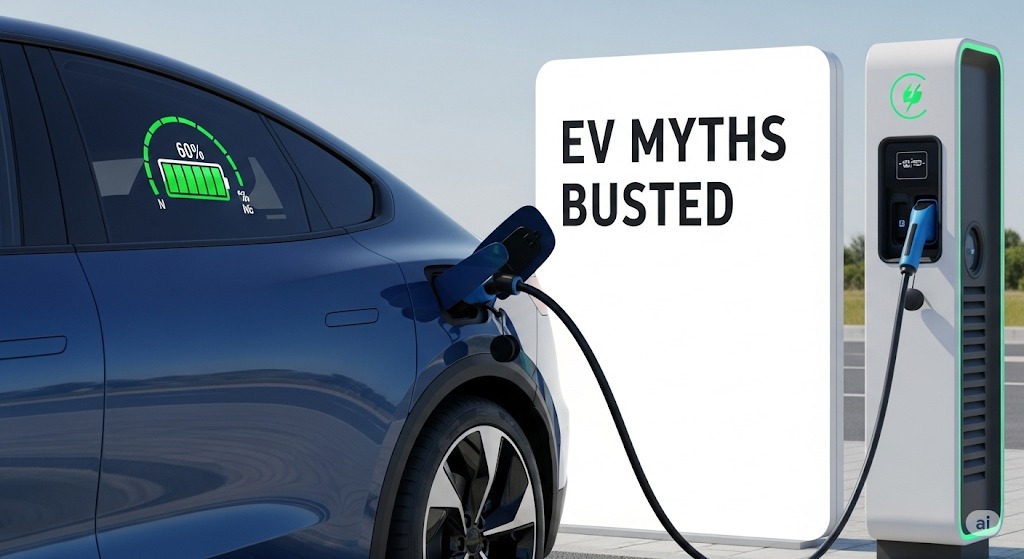Introduction
Thinking about switching to an electric car but confused by all the rumors? In 2025, many outdated EV myths stop people from making the shift to cleaner, cost-saving driving.
Here are the most common EV myths busted so you can make an informed choice without fear or confusion.
1. Myth: EVs Can’t Handle Long Trips
Reality:
Modern EVs like the Tata Nexon EV, MG ZS EV, and Hyundai Kona offer real-world ranges of 250–450 km on a single charge, enough for most long drives with planned charging stops.
With growing fast-charging infrastructure across highways, long trips in EVs are more practical than ever.
2. Myth: EVs Are Too Expensive
Reality:
While upfront costs can be higher, government subsidies, lower running costs, and fewer maintenance expenses make EVs affordable in the long run.
You save on:
-
Petrol/Diesel costs
-
Regular oil changes
-
Engine-related repairs
3. Myth: EV Batteries Don’t Last Long
Reality:
EV batteries typically last 8–10 years or 1,50,000–2,00,000 km with minimal degradation, and many manufacturers offer extended battery warranties.
4. Myth: There Aren’t Enough Charging Stations
Reality:
EV charging infrastructure in India is expanding rapidly, with apps like PlugShare and Tata Power EZ Charge helping you locate nearby chargers easily.
Many users install home chargers, ensuring convenient overnight charging.
5. Myth: EVs Are Slow and Boring to Drive
Reality:
EVs deliver instant torque and smooth acceleration, making them fun to drive in city traffic and highways.
Models like the MG ZS EV and BYD Atto 3 are proof that EVs can be both efficient and enjoyable.
6. Myth: EVs Aren’t Eco-Friendly Due to Battery Production
Reality:
While battery production has an environmental impact, EVs offset this through lower lifetime emissions compared to petrol and diesel vehicles.
Pairing EVs with renewable energy makes them even cleaner.
FAQs
Q: How long does it take to charge an EV?
A: Home charging takes 6–10 hours, while fast chargers can deliver 80% charge in 45–60 minutes.
Q: Are EVs safe during floods?
A: Modern EVs have water-resistant battery enclosures and safety systems to handle heavy rains.
Q: Will an EV increase my electricity bill?
A: Charging an EV is still cheaper than fuel costs, even with increased electricity usage.
Final Thoughts
Don’t let myths stop you from experiencing the benefits of EV ownership. With better range, growing charging networks, and long-term savings, 2025 is the best time to consider making the shift to an electric vehicle.
Which EV myth did you believe before reading this? Comment below!

